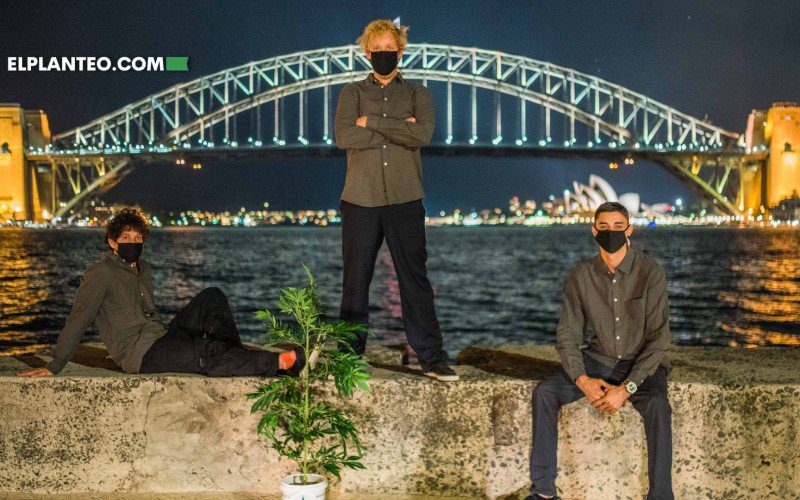Photos Courtesy of Author
Australia’s relationship with cannabis has been rocky, marked by periods of strict prohibition and incremental steps toward legalization. For decades, cannabis was viewed through a lens of criminality and danger, leading to severe penalties for its use, production, and possession. However, the tides have been slowly changing, driven by global trends and local activism pushing for reform.
Historical Context of Cannabis in Australia
Cannabis was first prohibited in Australia in the 1920s, following the country’s commitment to international drug control treaties. Over the years, the enforcement of these laws led to numerous arrests and incarcerations, with a significant impact on the lives of many Australians. Despite this, cannabis remained popular, particularly among young people and various subcultures.
In recent years, there has been a growing recognition of the medicinal benefits of cannabis, leading to the legalization of medicinal cannabis in 2016. This shift was a significant step forward, but recreational use remains illegal for the majority of Australia, and the laws surrounding cannabis continue to be a contentious issue. Starting January 31st, 2020, residents are allowed to grow two plants and possess 50 g (1.75 oz), despite sales still being illegal – even with cannabis seeds.
Activists have been at the forefront of pushing for more comprehensive reform, advocating not just for the medicinal use of cannabis but also for the decriminalization and eventual legalization of recreational use. Currently, around 18% of Australia’s population uses cannabis daily, and 41% of adults have used it in their lifetime. Cannabis is by far the most popular drug in Australia, and it only gives credence to the fact that this plant should be legalized.
The Rise of Activism
Will Stolk and Alec Zammit have emerged as prominent figures in the Australian cannabis activism scene. Their organization and movement, “Who Are We Hurting?” has become a powerful voice in the fight against cannabis prohibition. This group highlights the injustices and inefficiencies of current drug laws through bold and often controversial campaigns.
Innovative Activism: Stunts and Public Engagement
Stolk and Zammit’s approach to activism is anything but conventional. Their tactics include projecting pro-cannabis messages onto the iconic Sydney Opera House, placing fake cannabis plants throughout Sydney, and even setting up a fake hydroponic grow operation in a busy store space. These actions are designed to grab attention and spark conversations, breaking through the noise of traditional activism methods.
The annual 4/20 demonstrations organized by “Who Are We Hurting?” have become staple events in the Australian cannabis activism calendar, happening every year on 4/20 for almost a decade. These events are meticulously planned to maximize impact and media coverage. From flash mobs to pop-up installations, each campaign is designed to captivate and educate the public about the benefits of cannabis and the need for reform.
 Collaboration and Broader Impact
Collaboration and Broader Impact
In 2021, Stolk and Zammit partnered with Jenny Hallam, a renowned Australian cannabis activist, to stage a performance art piece at Parliament House in Canberra. This collaboration presented a symbolic $420,000, representing the real costs behind prohibition enforcement and potential lost revenue from a legal cannabis market. Such efforts highlight the inconsistencies in Australia’s cannabis laws and bring to light the real-life consequences of restrictive policies.
Their activism goes beyond making noise; it creates a sustained dialogue that forces people to confront the realities of cannabis prohibition. Humanizing the issue and putting faces to the stories of those affected by the laws make it harder for policymakers to ignore the need for reform.
The Legal Battles
Stolk and Zammit’s journey has not been without its challenges. Their activism has led to legal repercussions, including arrests and court appearances. Their projection of cannabis leaves on the Sydney Opera House resulted in charges and a lengthy legal battle. Despite these hurdles, they remain undeterred, using the legal proceedings as a platform to highlight the harshness and inconsistencies of current cannabis laws.
As of 2024, Stolk and Zammit were cleared of charges by the courts, and they were given back their money for legal fees and the projector used to project the cannabis leaves and phrases onto the Sydney Opera House.
Moving Forward
Stolk and Zammit are not just activists but trailblazers in the fight for cannabis reform in Australia. Their creative and strategic approach to activism continues to inspire and challenge the status quo. They aim to evolve Australia’s cannabis laws to reflect more progressive models like those in Canada, California, and Colorado.
The question posed by their organization’s name, “Who Are We Hurting?” powerfully reminds us of the ongoing struggle for cannabis legalization. Their relentless efforts underscore the need for a more rational approach to cannabis legislation, one that recognizes the plant’s therapeutic potential and respects individuals’ rights to use it responsibly.
Conclusion
Australia’s journey toward cannabis legalization is far from over, but with activists like Will Stolk and Alec Zammit leading the charge, there is hope for meaningful change. Their innovative tactics and unwavering commitment to the cause continue to push the boundaries of what is possible in the realm of cannabis activism. As Australia moves forward, the work of “Who Are We Hurting?” serves as a beacon of progress, reminding us of the power of bold risks and incremental progress in the fight for justice.


